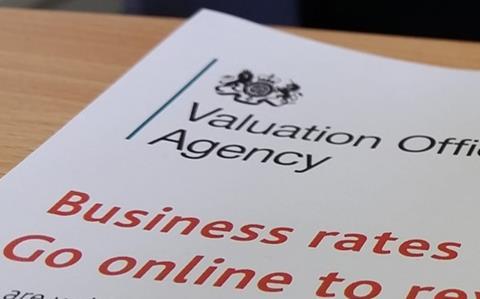
Imagine going to your local supermarket or greengrocer, because you fancy an apple. You have plenty of choice – Granny Smith, Cox, Pink Lady – and all are on offer at half price because of a great harvest this year.
That £1 bag of apples is now just 50p. The government applies a tax to apples, which works out at about half the value, so you expect to pay 75p.
But there’s a problem – the government does not calculate the tax on live prices, it only takes the value of apples at a point in time and applies the same tax value for four or more years thereafter. A few years ago apples were very expensive, about £2 a bag, so the till tells you your 50p bag of apples will actually cost you £1.50. Most people would put the apples back and leave empty handed, as the tax alone is twice the value of the apples.
The pending reintroduction next year of business rates as they stand is equivalent, and leaves us just as confused as my poor apple buyer. High street rents have gone down, yet the antiquated rateable value system is based not just on pre-Covid levels, but on years before that. The system is broken and will throw up rates payable in most cases at the rent or possibly even higher. Take into account flexible turnover-only leases, perhaps only on a short-term basis, and the system becomes even more flawed.
Being a landlord with a vacant unit is also tough, as not only do you have zero income but you’re paying an inflated tax based on historic values. Covid-19 has fast-tracked everything, and rates should be no exception, but it appears for the moment they are.
I’ve said before that the government should convert business rates into a sales tax, which would also capture online sales, and this is needed more urgently than ever.
The current business rates system is a rotten apple.
Ted Schama, managing partner, Shelley Sandzer





























No comments yet